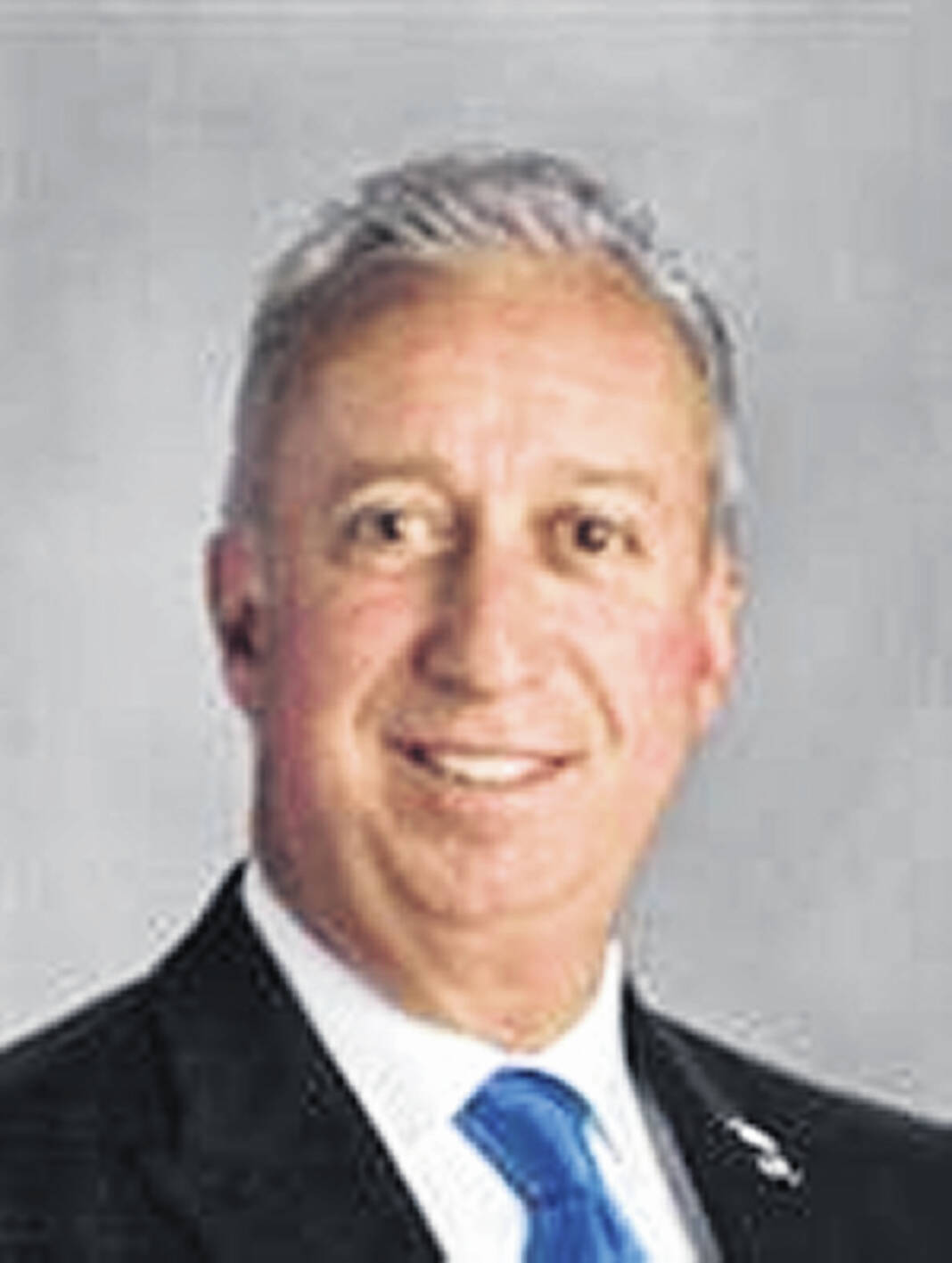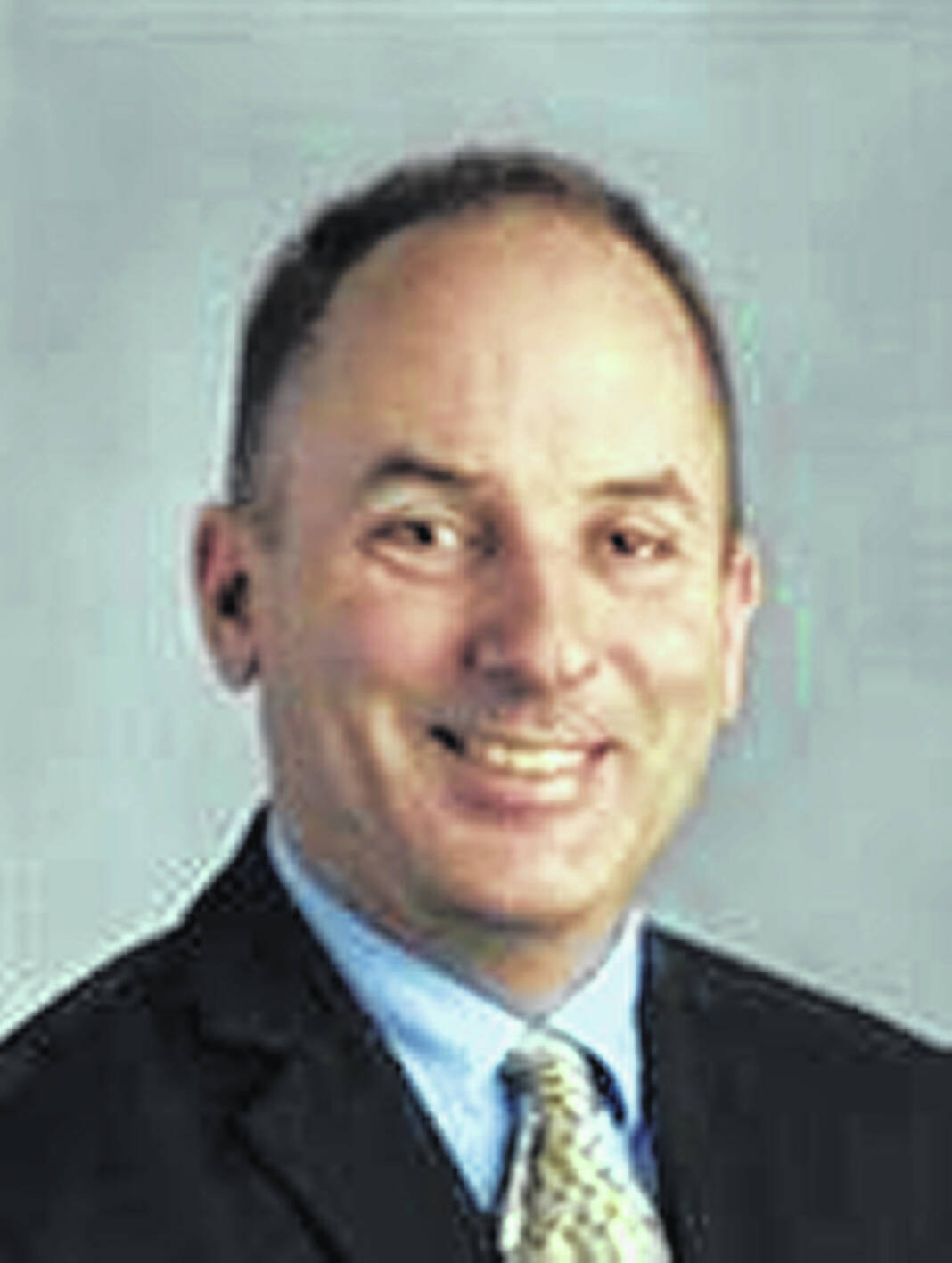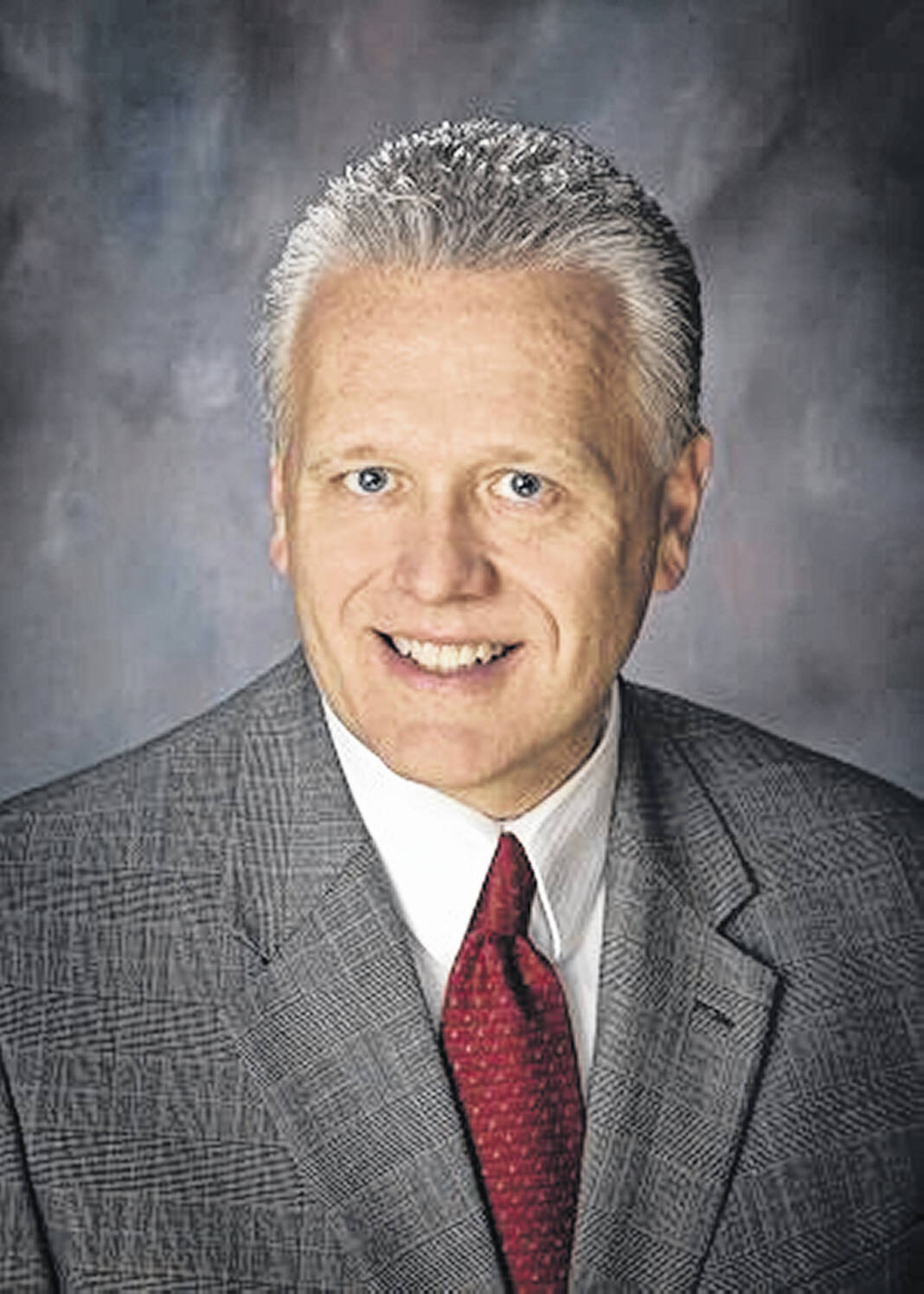

Stranges

Reeder

Backus
Administrators and teachers from Hayes High School shared results of the school’s new standard-based grading system with the Delaware City Schools Board of Education Tuesday, adding they will continue to roll out the program to new classes this fall.
Hayes Principal Dr. Ric Stranges and Assistant Principal Rex Reeder attended Tuesday’s board meeting along with English Department Chair Thomas Hering and math teacher Jake Shafer to share the results of another year of the new grading scale, which focuses on mastery of a subject rather than pure completion of assignments.
Stranges said the school is about to enter year three of a “five-year journey” to transform how students are assessed and graded at Hayes. The new system was used to teach core freshman classes and was piloted for sophomores this past school year and will roll out to sophomores next school years with pilot classes for juniors as well.
“We have to get better. We want to get better,” Stranges said. “We’re below the state average in areas we shouldn’t be. (We’ve seen) results we are very proud of.”
Stranges said one of the key changes is a shift from quarterly grades to an all-year grade, which gives students more chances to improve their grades throughout the year.
“There’s no reason we need to have grades finalized every nine weeks,” Stranges said. “We give parents updates, but kids should be able to continue to grow and learn through the whole year. We know where every student is academically. We’re building skills, mastering content and not just covering material. (When I was a teacher, we’d say), ‘We covered everything’ (but that) doesn’t mean the students learned it. We’re coaching our students to help them learn. This change is for the better.”
Hering said he taught using the new system in his core English classes as well as the Hayes Cinematics class he teaches and said he prefers the new method for several reasons, including more clarity for students and parents about requirements to succeed.
“All my assignments in canvas this year were built around certain standards and mastery scales,” Hering said. “(If a parent of a struggling students asks), ‘What’s (my student) going to do now?’ That’s really the question. It’s not about what I’m going to do as a teacher, it’s about what can (the student) do for this class now. It’s stakeholder driven. The student isn’t done learning at any point. A kid with three weeks left in this system (is) never lost for hope. We’re always focused on what matters; these skills, not assignments that were due four months ago that you can’t go back to. It’s about growth.”
Hering said the new system gives a more accurate picture of what students have learned in a given class.
“What’s more important is that our students have the opportunity for purposeful growth,” Hering said. “When we get to the end of the year there’s a real grade there. That is a real measure of where they are. We’re no longer looking at what a student has done in terms of just effort, we are looking at what a student knows. The State of Ohio is testing our students on what they know and can do.”
Hering said he supported the system, and he wished he’d been able to make the change sooner.
“I’m super excited,” Hering said. “There is no going back. This is so much better for our students and for us and for our parents.”
Shafer followed up Hering’s presentation and said more students are passing in math classes than ever before.
“(Last year I had) over 100 failures in the Algebra 1 course,” Shafer said. “This year, I had no failures. It’s because of what we’re doing with this program. Conversations have changed. Student affect has changed. We are now able to change the language to something that has always mattered to us, but we haven’t been able to say; I don’t care when you learn algebra, I care that you learn algebra. I don’t care when your grade happens, I care that you get there eventually.”
Shafer said the new system has also changed teacher attitudes at Hayes.
“Teachers around the building are so much more engaged and excited,” Shafer said. “Because we have focused conversations, and we feel like we’re doing something important. We feel like we’re doing something courageous and feel like we have ownership over the curriculum now.”
Shafer said the next step is to continue messaging the change to students, their parents, and the community “so that everyone understands what we’re doing here.”
“Once they understand that we’re measuring students on their skills, instead of the number of points they got on a test they might not have been ready for, once people understand we’re doing what’s right for the kids, they are converted to this system,” Shafer said. “There are kinks to work out, (but) the program is so much more important than the inconveniences that we’ve seen so far.”
Shafer was hired as the assistant principal of Olentangy Liberty High School at the end of the school year and will be leaving Delaware, but he hopes the district continues the program.
“I have never been so excited about a program,” Shafer said. “I truly hope with all my heart that Delaware will continue to lead and be courageous in curricular development. No one can believe what we’re doing here. It’s because we have courage, and we’re doing what’s best for kids.”
Reeder said he only had a handful of parents call to talk about the new system and said “most were just trying to understand.” Reeder said the new scales also make the instruction more personalized.
“Every kid learns at a different pace,” Reeder said. “(With this) there’s no one left behind. … (In the past) we had 90 different assessment models in the building … every teacher was grading differently. At Delaware City Schools, it shouldn’t be based on what teacher you have, it should be based on the skillset we are holding all of them to teach.”
Reeder said just because more students are passing doesn’t mean the system is easier.
“It’s not easier, it’s just cut and dry about what you have to do,” he said. “We are teaching kids to study; they were doing completion. You have to practice to get better, but the idea is that there’s no giving points for completion, it should be about what you’re learning.”
Reeder said the change has been challenging, but it’s worth continuing.
“Everybody is on the sideline watching, no one wants to get in the arena,” Reeder said. “We’re in the arena and we’re starting to show signs of something. We’re not done yet. You’re starting to see signs in all our classrooms. (Change) is not easy, but it had to happen.”
In closing, Stranges said that after 45 years in education, he’s “more excited than ever” to be at Hayes.
“This is Delaware, we ought to be the best,” Stranges said. “We have a passionate group of people.”
Board Vice President Ted Backus encouraged other board members to visit the school and see the system for themselves.
“It’s a tremendous change for our district and for our students,” Backus said. “We want to see that continue. We are becoming a leader in this around the world now. We are leading the change in something that is a game changer in education. We have got to get this program at the rest of the district. It’s imperative.”
Backus praised the work of Reeder to develop the scale and said, “There couldn’t been anyone more passionate about this than Rex Reeder.”
Glenn Battishill can be reached at 740-413-0903 or on Twitter @BattishillDG.

